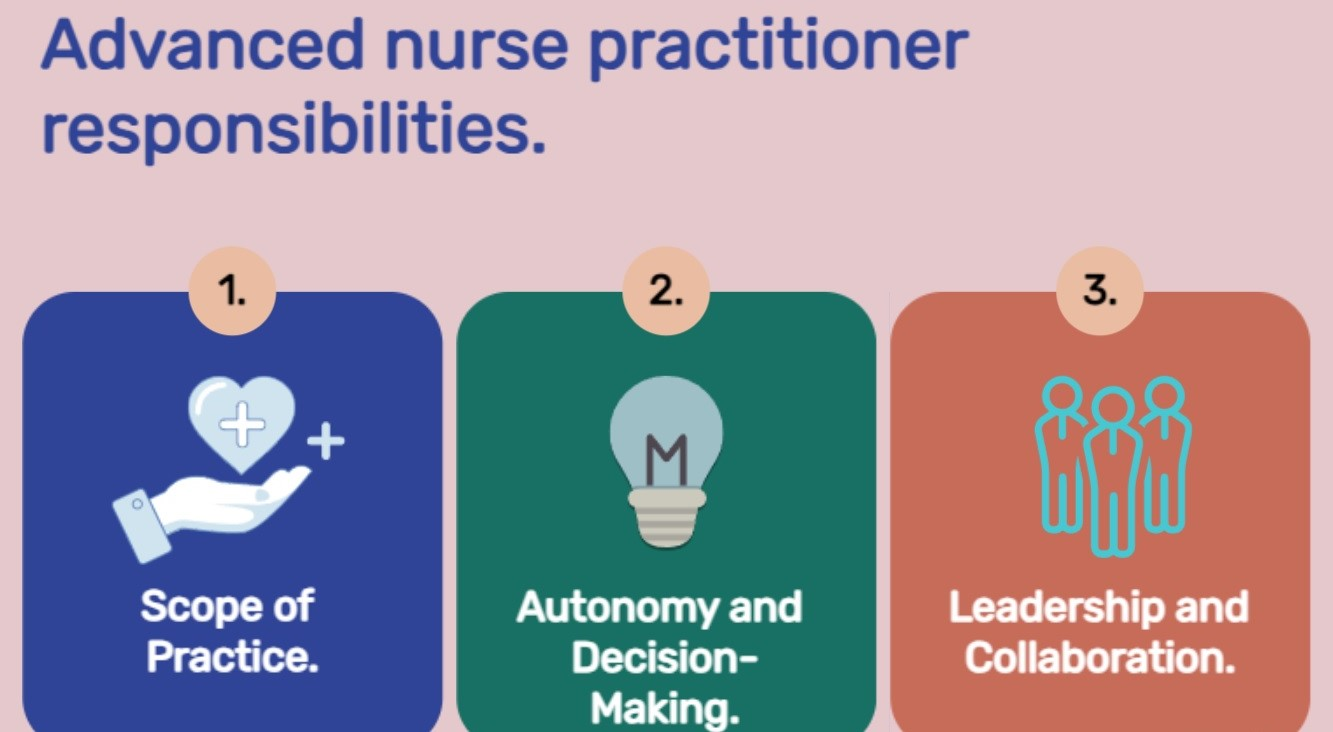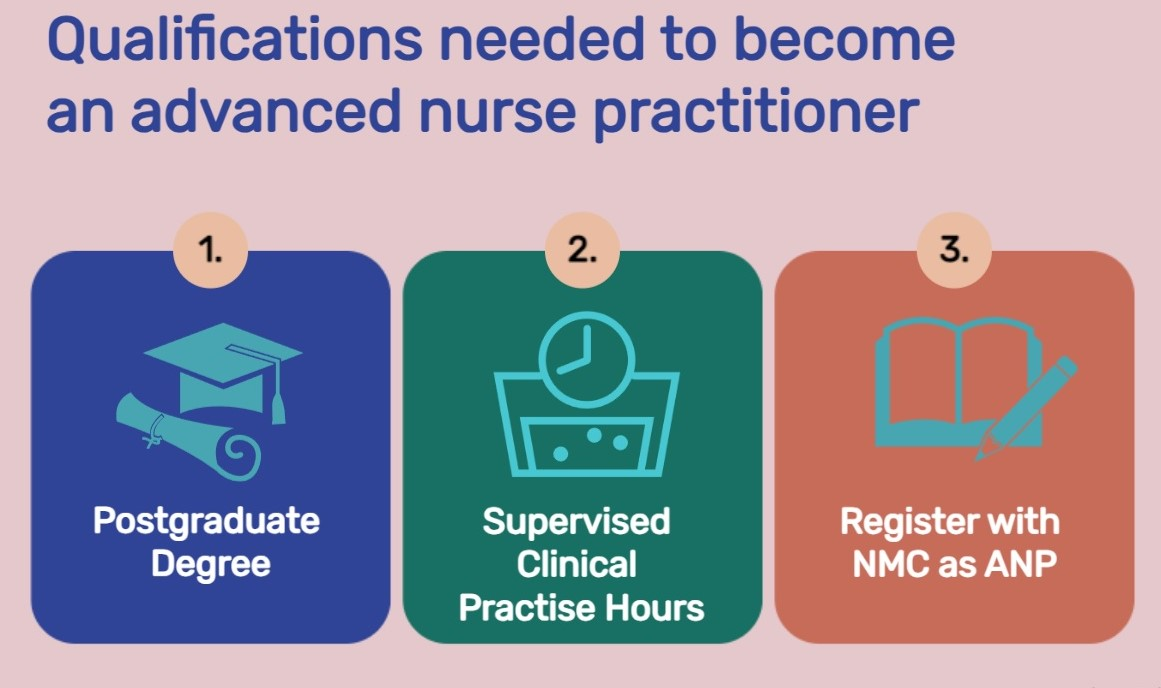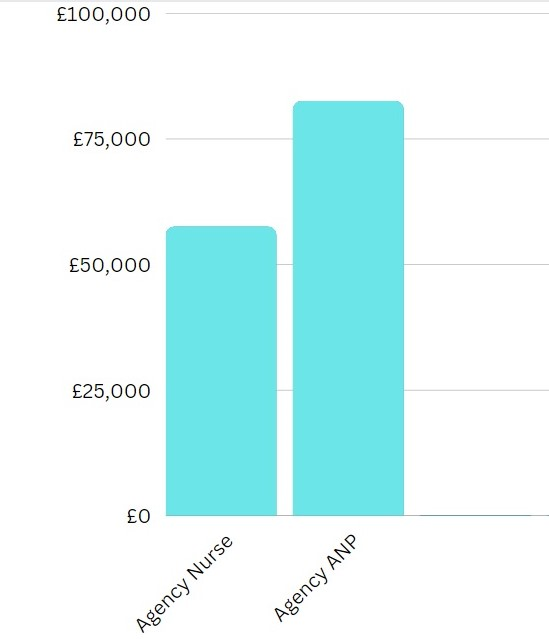
Learn the steps you need to take for a successful career as an Advanced Nurse Practitioner, plus find the latest available job openings. Get started today!
Are you a registered nurse looking to advance your career? Have you considered becoming an advanced nurse practitioner (ANP)? In this blog post, we’ll explore everything you need to know about ANP roles, their job descriptions, and how to become an ANP.
We’ll also take a look at job openings for Advanced Nurse Practitioners in the UK. So, if you’re looking to take your nursing career to the next level, read on!
What is an ANP (Advanced nurse practitioner)?
An advanced nurse practitioner (ANP) also referred to as Advanced Clinical Practitioners (ACPs) is a registered nurse who has completed additional training and qualifications in advanced clinical practice. They can be found in hospitals, clinics, community health centres, and even in private practices, where they serve as primary care providers to treat patients with a wide range of healthcare needs.
Advanced nurse practitioner responsibilities.
Scope of Practice.
Advanced nurse practitioners have an expanded scope of practice compared to Registered Nurses. As advanced healthcare providers, ANPs are authorised to diagnose medical conditions, extensive university-led training in a range of subjects including physical examination, interpret diagnostic tests, and independently prescribe medication. They act as primary caregivers, managing patients’ overall healthcare needs, and may even provide specialised services like family planning, mental health counselling, or chronic disease management.
Autonomy and Decision-Making.
ANPs generally work with more autonomy. While both roles collaborate with other healthcare professionals, ANPs often have the authority to make independent decisions regarding patient care. This level of autonomy requires a high level of confidence, critical thinking, and clinical judgment.
Leadership and Collaboration.
As advanced healthcare professionals, ANPs often take on leadership roles, mentoring junior nurses, coordinating a multidisciplinary team, and collaborating with other healthcare providers to ensure seamless patient care. They are instrumental in promoting evidence-based practice, improving healthcare outcomes and the ability to take lead in a clinical setting.

Qualifications needed to become an advanced nurse practitioner – Advanced Practice.
One of the primary differences between an ANP and a Registered Nurse lies in their educational background and training. While both roles require a nursing degree, ANPs undergo advanced practice education, typically at the Master’s or Doctoral level, with specialised training in a chosen area of advanced nursing practice.
This comprehensive education equips ANPs with advanced practice clinical knowledge and skills, enabling them to handle complex medical situations independently.
ANPs in the UK typically need to pursue a postgraduate degree in advanced nursing practice. This may include a Master’s degree, a Postgraduate Diploma, or a Postgraduate Certificate in a specialised area of advanced nursing, such as acute care, primary care or mental health.
During your postgraduate education, ANP students are required to complete a certain number of supervised clinical practice hours to demonstrate their competency in their chosen specialty.
After completing their postgraduate education and clinical competencies, ANPs can register with the Nursing and Midwifery Council (NMC) as an Advanced Nurse Practitioner. Registration with the NMC is necessary to practice nursing legally as an ANP in the UK.

What are the different types of ANP roles?
There are different types of ANP roles available within the NHS and in primary care settings. ANP roles can vary depending on the employer and the patient group they work with. Some ANPs work in primary care settings, while others work in acute care or secondary care. Some examples of ANP roles can be found below:
Psychiatric nurse practitioner
An advanced nursing professional with specialised expertise in mental health care, make clinical assessments, diagnosis, treatment, and support for patients dealing with various psychiatric and psychological conditions.
Acute nurse practitioner
ANPs in acute care focus on managing complex and acute medical conditions in various hospital settings, including emergency departments, intensive care units, and specialty wards.
Cardiac nurse practitioner
An advanced nursing professional who specialises in providing specialised care to patients with cardiovascular conditions, including assessment, diagnosis, treatment, and management of cardiac health conditions.
Paediatric nurse practitioner
Paediatric ANPs focus on providing advanced care to infants, children, and adolescents. They can work in paediatric clinics, hospitals, or specialty paediatric units.
Registered Practicing Midwife
The care of pregnant women, pregnancy related conditions and assisting with childbirth. Maternity care is the one speciality where only a registered medical practitioner or a practicing midwife can provide care for a pregnant woman.
These are just a few specialist roles that can be your chosen route of career when becoming an Advanced Nurse Practitioner. Other areas of expertise could be oncology, renal etc.
ANP Salary Expectations.
A survey taken from numerous sources shows agency nurse practitioners can expect to receive much higher nursing pay rates, in the region of £80,000 – £85,000 per year on the provision they work full time.
On the other hand, a full time Agency Nurse can expect to receive lower pay rates in the region of £55,000 – £60,000 per year.

This figure will change based on experience, location, and the healthcare facility. It’s also important to note that salaries and hourly pay rates will change over time, but hopefully this should give you a valuable insight and what to expect.
Agency Nurse Pay Rates vs Staff Nurse Pay Rates | CVLocum
Job Openings for ANP Roles:
ANP roles are in high demand in the UK. Health Education England (HEE) has identified ANPs as a key part of the workforce to help meet the increasing demand for healthcare services. There are currently over 7,000 ANPs registered with the Nursing and Midwifery Council (NMC) in the UK.
To find job openings for ANPs, you can browse our job’s board with hundreds of Nursing roles waiting for someone like you! You can also contact local healthcare providers directly to inquire about job opportunities.
Be sure to tailor your CV and cover letter to the specific role you’re applying for and highlight your skills and experience as an ANP.
Crafting the Perfect CV Nurse Writing Tips, Templates and examples included.
Alternatively, find our user friendly job’s board below:
Conclusion:
In conclusion, becoming an ANP is a great way to advance your nursing career and take on more responsibility in your practice. ANPs are in high demand in the UK, and there are a variety of roles available in different healthcare settings.
If you’re thinking about becoming an ANP, be sure to research the programme requirements and job opportunities in your area. With the right qualifications and experience, you’ll be well on your way to becoming a successful ANP!



